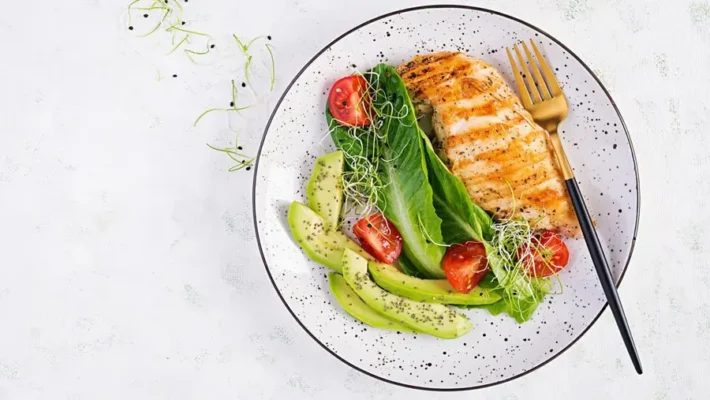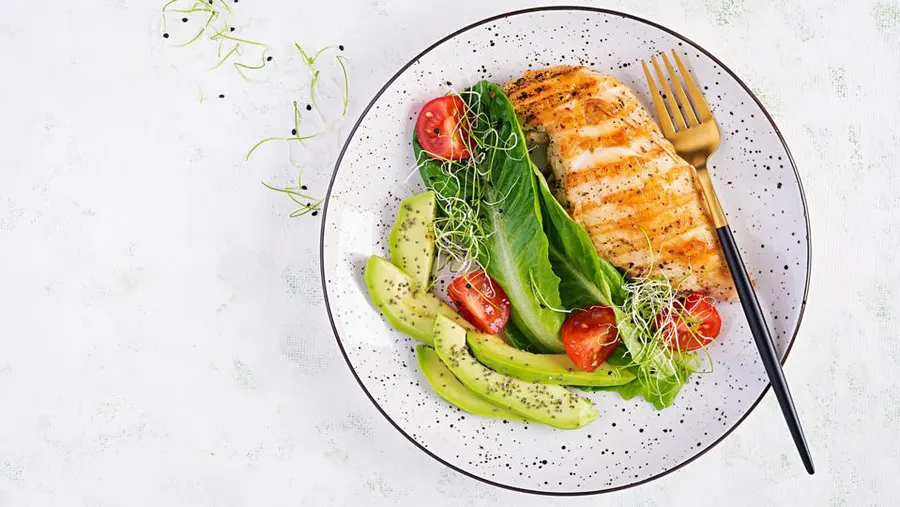The 30-30-30 diet, also known as the 30/30/30 morning routine, is a weight loss method that involves:
- Eating 30 grams of protein within 30 minutes of waking up.
- Following it up with 30 minutes of low-intensity exercise.
This method gained popularity on TikTok thanks to biologist Gary Brecka, but the concept itself was originally introduced in Tim Ferriss’s book “The 4-Hour Body.”
Here’s a breakdown of the 30-30-30 diet:
1. Eat 30 grams of protein within 30 minutes of waking up:
- This promotes muscle growth and repair, which can boost metabolism and help you burn more calories throughout the day.
- Good protein sources for breakfast include Greek yogurt, eggs, cottage cheese, oatmeal with protein powder, or a protein smoothie.
2. Do 30 minutes of low-intensity exercise:
- This could be anything from walking, swimming, biking, or light yoga.
- The goal is to keep your heart rate elevated but not at an intense level.
- This type of exercise is believed to help burn fat and improve insulin sensitivity.
Potential benefits of the 30-30-30 diet:
- Weight loss: The combination of protein and exercise can help you create a calorie deficit, leading to weight loss.
- Increased muscle mass: Protein intake is essential for muscle growth, and the 30-30-30 diet can help you build more muscle, which can further boost your metabolism.
- Improved blood sugar control: Exercise and protein can both help regulate blood sugar levels, making this diet potentially beneficial for people with diabetes or prediabetes.
- Enhanced energy levels: Starting your day with protein and exercise can give you a boost of energy and improve your mood.

However, it’s important to note that the 30-30-30 diet is not a one-size-fits-all solution:
- It may not be suitable for everyone, especially those with certain medical conditions.
- It’s important to listen to your body and adjust the intensity and duration of your exercise as needed.
- A balanced diet and regular exercise are still essential for overall health and weight management.
Here are some additional things to keep in mind:
- The type of protein you choose matters. Opt for lean protein sources like chicken, fish, beans, or lentils.
- Don’t force yourself to eat if you’re not hungry in the morning. You can adjust the timing of your protein intake to fit your preferences.
- The 30 minutes of exercise doesn’t have to be all at once. You can break it up into shorter sessions throughout the morning.
- It’s important to stay hydrated throughout the day.
Overall, the 30-30-30 diet can be a helpful tool for weight loss and overall health improvement, but it’s important to approach it with caution and make sure it’s right for you. Consulting with a registered dietitian or healthcare professional can help you determine if this diet is a good fit for your individual needs and goals.
I hope this information is helpful! Let me know if you have any other questions.

